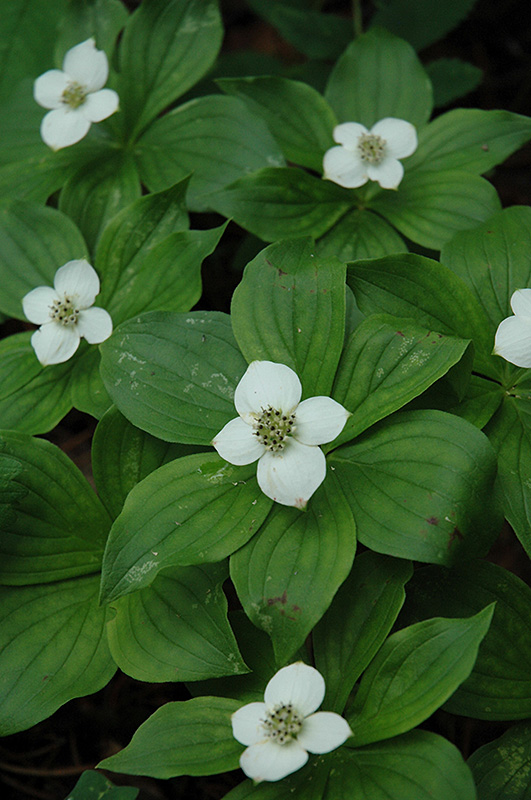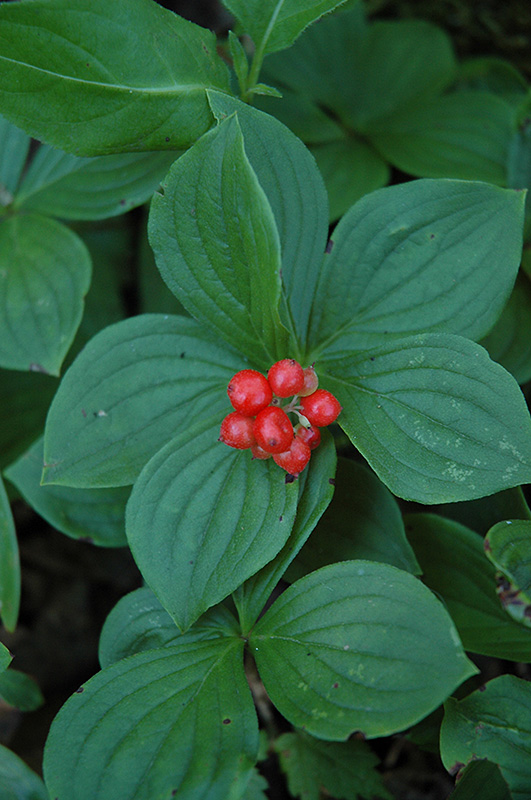Height: 8 inches
Spread: 24 inches
Sunlight:
![]()
![]()
![]()
Hardiness Zone: 1
Other Names: Creeping Dogwood
Description:
One of the more refined hardy groundcovers, with incredible white flowers in spring and red berries in fall; very particular about its siting, needs moist, well-drained organic and acidic soil and shade; stunning when happy
Ornamental Features
Bunchberry has creamy white star-shaped flowers with white bracts at the ends of the branches from late spring to early summer, which are interesting on close inspection. The red fruits are held in abundance in spectacular clusters from mid summer to early fall. It has dark green evergreen foliage. The pointy leaves turn an outstanding brick red in the fall, which persists throughout the winter.
Landscape Attributes
Bunchberry is a spreading evergreen shrub with a ground-hugging habit of growth. Its relatively fine texture sets it apart from other landscape plants with less refined foliage.
This shrub will require occasional maintenance and upkeep, and should never be pruned except to remove any dieback, as it tends not to take pruning well. It is a good choice for attracting birds to your yard, but is not particularly attractive to deer who tend to leave it alone in favor of tastier treats. It has no significant negative characteristics.
Bunchberry is recommended for the following landscape applications;
- Groundcover
Planting & Growing
Bunchberry will grow to be about 8 inches tall at maturity, with a spread of 24 inches. It tends to fill out right to the ground and therefore doesn't necessarily require facer plants in front. It grows at a slow rate, and under ideal conditions can be expected to live for approximately 20 years.
This shrub performs well in both full sun and full shade. It requires an evenly moist well-drained soil for optimal growth, but will die in standing water. It may require supplemental watering during periods of drought or extended heat. It is particular about its soil conditions, with a strong preference for rich, acidic soils. It is quite intolerant of urban pollution, therefore inner city or urban streetside plantings are best avoided, and will benefit from being planted in a relatively sheltered location. Consider covering it with a thick layer of mulch in winter to protect it in exposed locations or colder microclimates. This species is native to parts of North America.


